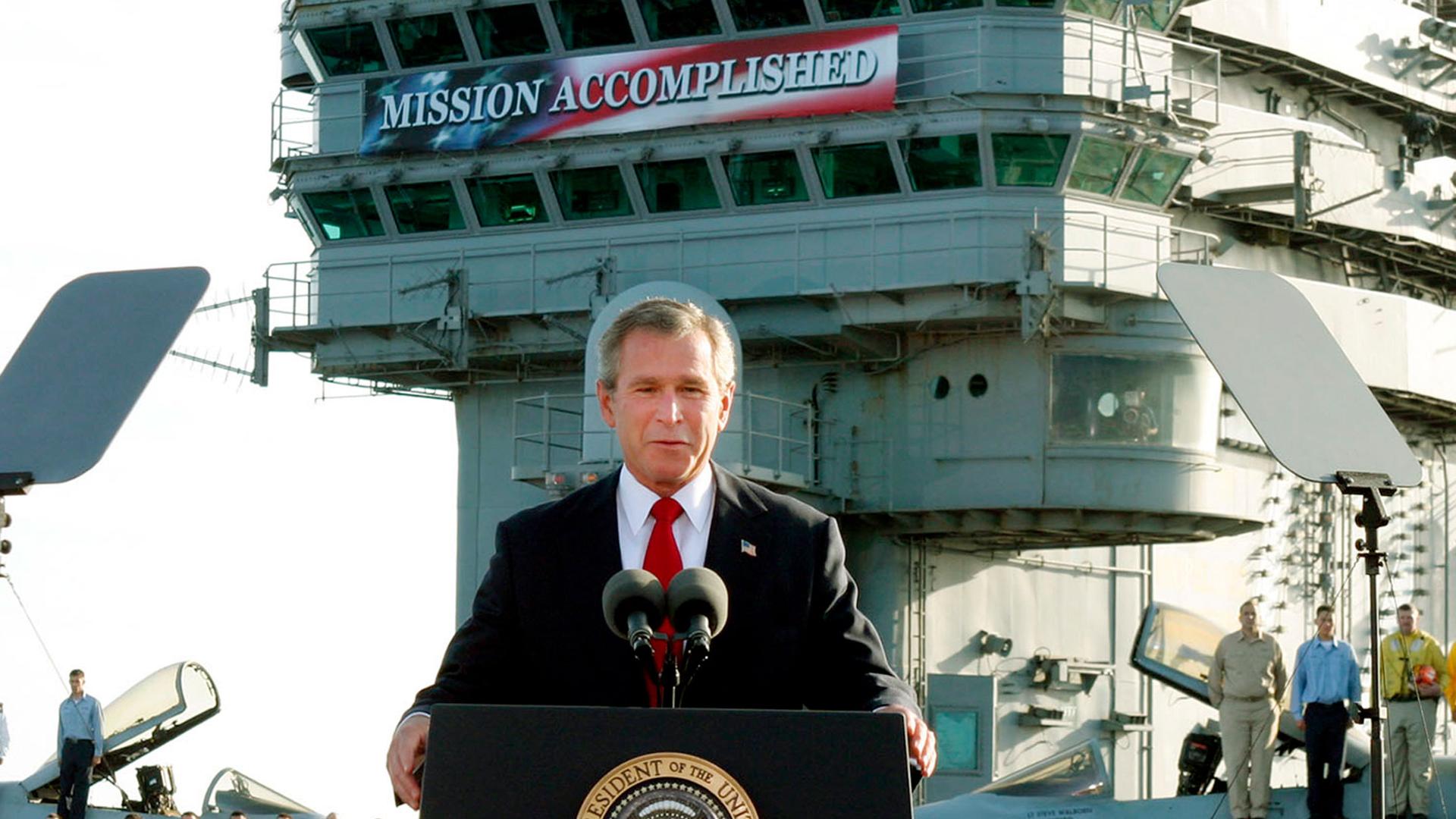This analysis was featured in Critical State, a weekly foreign policy newsletter from Inkstick Media. Subscribe here.
When the United States invaded Iraq in March 2003, together with the United Kingdom and a handful of tag-along allies, it unmade not just a dictatorship but the nation itself.
As the invasion sprinted from victory over Iraq’s President Saddam Hussein to rapid dismantling of government and then hapless occupation, groups in Iraq began to contest the idea of the nation. This has led to a long-running civil war, the imposition of a sectarian constitution, and ultimately the mass exodus of ethnic and religious minorities that were afforded only nominal protections and no real power under the new constitution.
In “Nation-destroying, emigration and Iraqi nationhood after the 2003 intervention,” Oula Kadhum examines how before the modern state of Iraq could congeal into its present form, the existing national community was actively destroyed, broken up, and remade, with minorities taking their communities to new and safer homes beyond the borders of Iraq.
“Caught between more dominant and competing ethnic and sectarian nationalisms, non-Muslim Iraqi minorities became targets in the quest for territorial gain and political power, or were otherized through takfir campaigns and imagined out of the nation,” Kadhum writes.
“Takfir campaigns refer to the campaigns by ISIS to target non-Muslim and Muslim infidels,” and while ISIS may have been the most explicitly exclusionary of the factions to context for power in post-invasion Iraq, the reordering of the nation around sectarian lines predates and post-dates its emergence and power.
To understand this nation-destroying, Kadhum conducted interviews with members of Iraqi diaspora communities. Today, those diaspora communities, in many cases, represent the largest share of a given group’s population, as the war in Iraq left no protection and no civic nationalism for minorities to share in.
“Whereas before 2003, there were roughly 1.5 million Christians in Iraq, today that figure stands at just 250,000. More generally, minorities in Iraq were said to comprise 10% of the Iraqi population in 2003; these included Armenian, Syriac and Chaldo-Assyrian Christians, Baha’is, Jews, Sabaean-Mandaeans and Yazidis as well as ethnic minorities such as Shabaks, Turkmen and Palestinian refugees,” Kadhum writes.
“By 2010, and even before the 2014 threat from ISIS, that number had dwindled to 3% for Iraq’s most vulnerable minority groups, excluding Turkmen and Faili Kurds,” she continues.
As of 2020, ethnic minorities made up no more than 5% of the population.
The US-driven effort to build a state in Iraq, especially amid the growing civil- and anti-occupation war, settled on a confessional system, formally taking signifiers like Sunni, Shi’a, or Kurd, and making them a fixed political identity.
“Iraqi minorities were no longer discriminated against linguistically or culturally, as they were under the Iraqi constitution, but their citizenship has been relegated from an active one to a passive one as their electoral power has effectively been curtailed,” Kadhum writes.
“Indeed, apportioned just nine out of 329 parliamentary seats in the parliamentary electoral laws, the ability of Iraqi minorities to participate with any significance in Iraq’s democratic governance has been negligible if not non-existent.”
Ultimately, Kadhum concludes, “The 2003 intervention, therefore, catalysed a process of dividing the Iraqi nation into primordial entities rather than unifying it under a civic nationalism.”
Critical State is your weekly fix of foreign policy analysis from the staff at Inkstick Media. Subscribe here.
